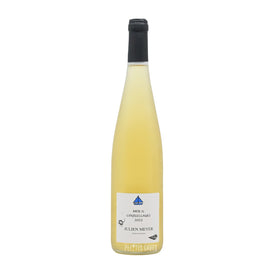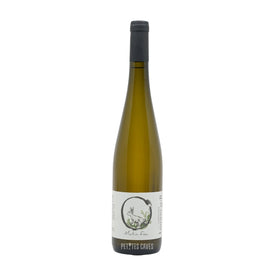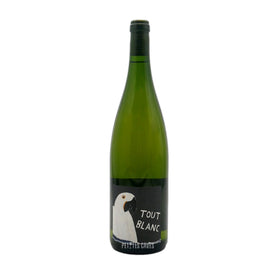Winery OSTERTAG
winemaker : André Ostertag
Region: Alsace
City: Epfig
Grape varieties : riesling, sylvaner, pinot noir, gewurztraminer, muscat, pinot gris
Surface Winery: 15 ha
Annual production: 85.000
Certification: biodynamic (Demeter)


Wines from this Winery are in great demand and currently out of stock. Take the opportunity to discover other wines!
These wines should also please you

We're talking to you about his Winery
| The Ostertag family no longer has to prove itself with regard to the quality of its wines and its biodynamic approach, which is sure to delight your taste buds! The Winery Ostertag now produces various Alsatian organic wines, each one more prestigious than the next: Pinot noir, Gewurztraminer, Sylvaner, Muscat, Pinot gris and of course Riesling... Ostertag is an emblematic wine Winery of the Alsace region. At the origin of this family history, we find Adolphe Ostertag who cultivated his land in the 1960s. The family grew beets, alfalfa and potatoes at the time! The family handover is done afterwards and it is Adolphe who inherits Winery. The latter refocuses the activity of the family land around the vineyard and begins its exploitation. It was not until 1966 that the very first Ostertag wine was harvested and bottled. Adolphe discovered his boundless passion for the vine, fought to have the quality of the wines of the Bas-Rhin recognized and worked hard to develop Winery. In only 20 years, Winery has grown from a total area of 1.5 hectares to today 15 hectares, divided between white wines (almost 14 hectares of Winery are devoted to it) and other red wines (0.7 hectare). Taken over in the 1980s by André Ostertag, the son, Winery has been able to prosper and grow over the years. With its 5 hectares in those years, the Winery now produces on more than 15 hectares, all spread over what André calls his "vineyard gardens". There are 80 of them, spread over several villages: Epfig (63%), Nothalten (30%), Itterswiller (2%), Ribeauvillé (4%) and Albé (1%) and various localities: Zellberg, Fronholz, Heissenberg, the Grand Cru Muenchberg as well as a recent plot on the Hagel de Ribeauvillé, more precisely, the Clos Mathis. Thus, like a gardener, André navigates from garden to garden, taking care of each of his vines. This is another specificity of Winery Ostertag... the vine. It was in 1997 that André had the idea to try Biodynamics: "sometimes you have to do things you don't understand and see what happens". And the result was excellent! Since 1998, 100% of the vines have been biodynamically cultivated in this way, with respect and understanding for the surrounding flora and fauna. The team at Winery pays particular attention to the changes in the soil and the ecosystem. | Always in the same spirit of preservation, the Ostertag family chooses wooden barrels from the Vosges and thus promotes the regional territory. The harvest is entirely manual, the wine is not filtered and the use of sulphur is minimal. Amongst these numerous grape varieties, André Ostertag distinguishes three different classes of wine: the Fruit wines, the Stone wines and the Time wines. In the Fruit wines, it is the expression of the Grape variety grape that is sought. The grapes are harvested at normal maturity and aged for 6 to 9 months. These wines are generally drunk young and can be kept for 5 years. The label, designed by Christine Colin, André's wife, symbolises the "Vin Dansant". Pierre's wines are the expression of the terroir, the mother rock and the stone. The harvest is delayed a little to express even more maturity and the maturation lasts 11 to 18 months. Although the wines have a long ageing potential of 10 to 20 years, they can be drunk young, at maturity or as they approach the age of wisdom. The label, always designed by Christine, symbolises the "Pied de Vigne". The wines of Time give priority to the expression of over-ripeness or noble rot, which can only be achieved by waiting for favourable weather conditions. The maturation period is a little shorter than for the Pierre wines (9 to 12 months), but the maturity of the fruit makes these wines suitable for long ageing (20 to 50 years). The bottles are transparent with a minimalist label made by André, all to highlight the splendid colour of these wines. In some cases, such as for the Pinots, barrels are preferred to vats in order to develop the wine's aromas a little more. André's son, Arthur, having travelled all over France to learn, has returned with, according to his father, "an entire science of the grape". But it is the Riesling that takes up most of the time at Winery, with more than 50% of Winery dedicated to it. |









